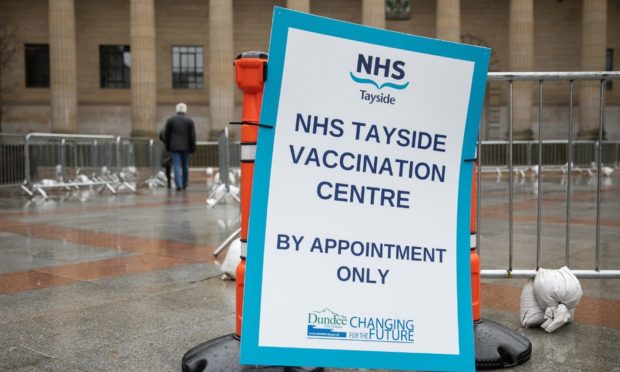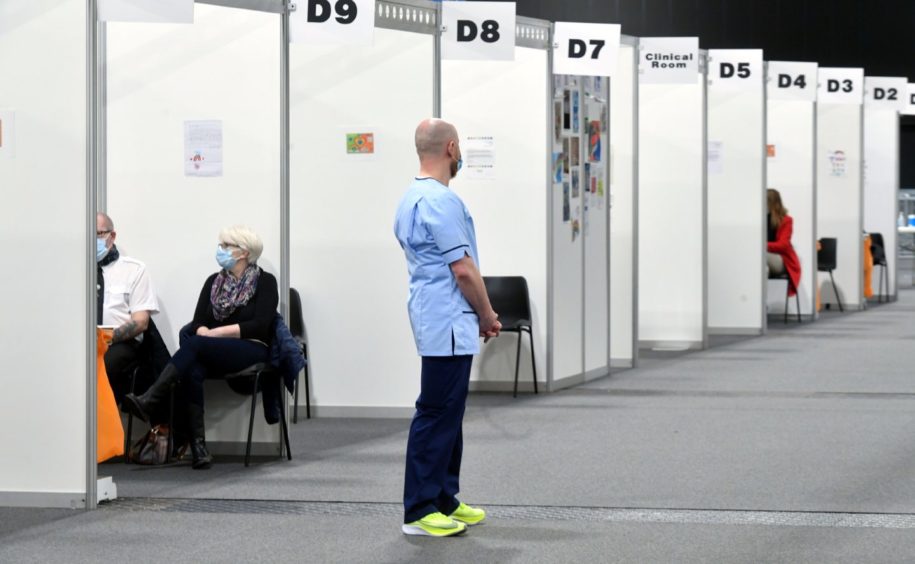A coronavirus vaccination loophole that allows anyone to book a jag with no questions asked has raised fears some are skipping the queue.
Scotland’s online Covid-19 vaccination portal allows people to register as an unpaid carer before booking in for an appointment without ID.
The system is designed to ensure unpaid carers, who look after many of the country’s most vulnerable people, can self-register and access jags as easily as possible.
However, it also means some members of the public are taking the opportunity to get vaccinated despite not being eligible yet.
System ‘operates on trust’
Fiona Collie, policy & public affairs manager at Carers Scotland, stressed many people do not recognise they are unpaid carers and so the system needs to be simple to encourage uptake.
But she said anyone not eligible and abusing the system should refrain from using the portal and be patient.
She said: “I would hope that those who would do the wrong thing will wait until their age group is called forward and understand and respect the huge contribution that unpaid carers have made during this pandemic, often at great personal cost.
“The self-referral does operate on trust but it is a balance between a simple system that ensures that unpaid carers can easily receive their vaccination (to reduce the risk of care breaking down if the carer was to become ill) versus a complex system to prevent the very small number of people who are not unpaid carers who would do the wrong thing.”
‘Inclusive approach’ needed
As of March 11, over 160,000 people have received a vaccine after registering as an unpaid carer.
The Scottish Government says it is not able to estimate how many people should be eligible due to the loosely defined criteria.
It also says open access to the portal is the most efficient way of ensuring all unpaid carers can get vaccinated.
A spokesperson said: “As has been previously stated, it is crucial that all unpaid carers providing face-to-face care are offered a vaccination so they are protected while they provide vital care for others.
“If a carer were to get unwell and have to self-isolate, it would have a huge impact on the person they were providing care for and we have strived to have an inclusive approach on this, to make sure that we make it easy for carers to come forward and be vaccinated, and many caring organisations support this approach.
“Those self-registering are asked about their caring responsibilities. Our priority is ensuring vaccination is accessible for this important group.
“Many unpaid carers will not have a document to prove their carer status. All four nations have provided a self-certification route for unpaid carers who are not registered.
“While there is always some risk with self registration, it is really important that we make the process as easy as possible for carers to help protect themselves and those they care for.”
Who is an unpaid carer?
An unpaid carer is defined as someone who carries out anything from domestic tasks to personal care.
This includes people who regularly help a vulnerable person with the shopping, picking up prescriptions or preparing meals.
Other examples are carers who help others to wash and dress or provide emotional support to someone such as a partner, friend or family member with a long-term health condition.
Those most at risk are being prioritised in line with advice from the Joint Committee of Vaccination and Immunisations (JCVI), with frontline health and social care workers, care home residents and staff and those aged over 80 offered the vaccine first.
Since March 15, carers not already identified through social security or GP information have been able to self-register. They are within Group 6 of the JCVI priority list.
Invites for the latest cohort — the under-50s — are currently being issued.
The remaining adults will be done by groups, starting with 40-49, then 30-39 and finally 18-29.
NHS Tayside and NHS Fife are aiming to offer a vaccination to everyone in each age group by mid-summer.

